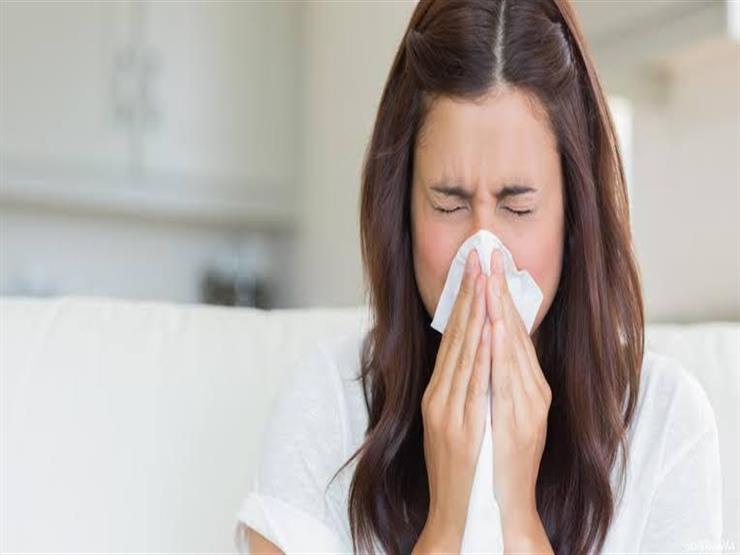02:36 PM
Wednesday 18 November 2020
–
I wrote: Nourhan Muhammad
Your body makes you sneeze when it feels something in your nose that is not normal, this can include bacteria, dirt, dust, or smoke, and you may feel an itchy sensation and discomfort in your nose, and soon after you will sneeze.
And sneezing helps prevent you from contracting many diseases, due to the different types of dust and microbes that may enter your nose, as it contributes to “resetting” your nose settings to normal.
Some people may tend to hold a sneeze in a crowded place, or in other situations where having to sneeze seems inappropriate, but research indicates that suppressing it may be dangerous to your health, and in some cases it causes serious complications that we mention to you, according to what was reported by “Healthline” .
Increased pressure inside the respiratory system:
It increases dramatically to a level between 5 to 24 times, and experts say that the extra pressure inside your body could cause potential injuries, which could be dangerous, including:
1- Rupture of the eardrum.
When you maintain the high pressure that builds up in your respiratory system before sneezing, you send some air into your ears, and it passes through a tube in the middle ear and eardrum, called the “eustachian tube”.
The pressure may cause a rupture of the eardrum or hearing loss. Most of the rupture of the eardrum heals without treatment within a few weeks, but there are some cases that need surgical intervention.
2- Middle ear infection:
Sneezing helps clear your nose of any things that should not be present, including bacteria, and redirecting air to your ears from the nasal passages can transfer bacteria or infected mucus to the middle ear, causing an infection.
This infection is often very painful, but it usually clears up without treatment, but in some cases it requires antibiotics.
3- Damage to blood vessels in the eye, nose, or eardrum:
While it is rare, it is possible to damage the blood vessels in your eyes, nose, or eardrum, as the increased pressure causes the blood vessels in the nasal passages to compress and burst, and this injury usually causes superficial damage to your appearance, such as redness of your eyes or nose.
4- Diaphragm injury:
The diaphragm is the muscular part of your chest above your abdomen, and doctors have noticed cases of compressed air trapping in the diaphragm, which leads to the collapse of the lungs.
This is a life-threatening injury that requires immediate hospitalization. More commonly, you may feel pain in your chest after sneezing due to the additional air pressure.
There are some common questions for you to stop sneezing, we mention, for example:
Can sneezing cause a heart attack?
It will not cause your heart to stop, but it may affect your heart rate temporarily.
• Can you die from it?
Although we have not encountered the reported deaths of people dying from a sneeze, it is not impossible for anyone to die from it.
And some of the injuries from sneezing can be very serious, such as an aneurysm in the brain, a torn throat and a collapsed lung.
Can you avoid sneezing?
If you do not want to feel the urge to sneeze, it is possible to stop it before it turns into a sneeze through the following:
• If you suffer from allergies, you should treat it
• Protect yourself from exposure to irritants in the air, such as dust and smoke.
Avoid looking directly at lights
Avoid overeating
• Use a suitable nasal spray
Most of the time, holding with a sneeze will do nothing more than just a headache or eardrum pain, but in some cases, it can seriously damage your body. The bottom line: Avoid the things that make you sneeze and let your body sneeze when it needs to.
– .

/data/photo/2020/11/08/5fa71248c0939.jpg)
